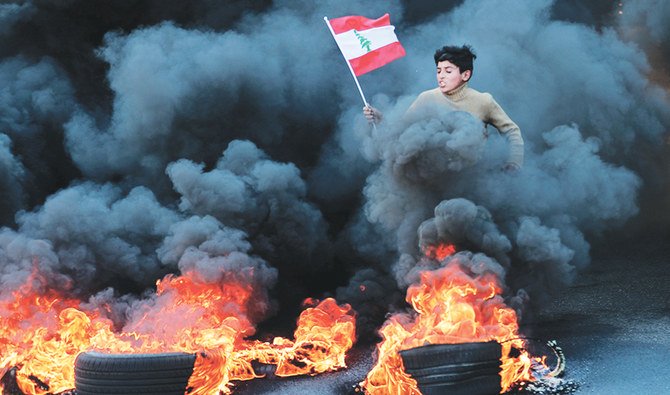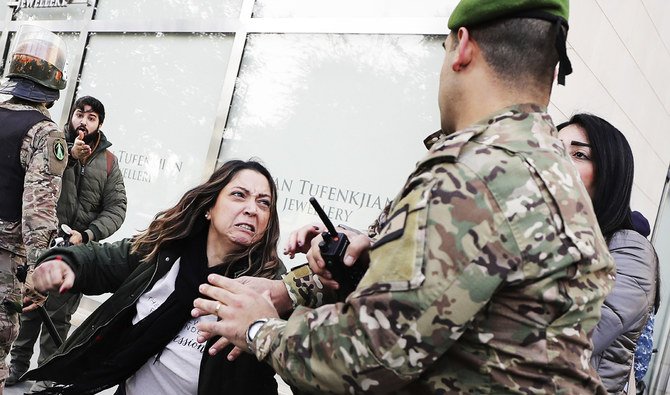



Najia Houssari
BEIRUT: There has been a significant decline in Lebanon’s angry protests, months after demonstrations began in response to corruption, mismanagement and the country’s terrible economic situation.
Peaceful protests in Beirut and elsewhere turned into riots as attempts to form a new government stalled and financial authorities imposed tough measures on banking services.
But, amid rumors of a coronavirus outbreak and Prime Minister Hassan Diab working on an action plan to deal with the economic crisis and unveil its vision for the future, protester numbers have dwindled.
Voices calling for change and accountability have diminished and are limited to prominent activists.
Activist Rabih El-Zein was detained for more than three days on charges of rioting and blocking roads.
He was taken from Roumieh Central Prison, blindfolded and handcuffed, to appear before a judge.
El-Zein’s attorney, Nohad Salma, condemned this treatment and said his client had been tortured during the preliminary security investigation and by other detainees in his cell.
His arrest coincided with the protest movement losing its heat. The retreat has encouraged security forces to reopen major public space after activists abandoned their tents in Riad El Solh and Martyrs’ squares, as well as squares in in Sidon, Nabatieh, Tyre and Tripoli.
“There is no security decision to disperse the protests in Beirut’s squares. Removing the metal barriers at the entrance of Martyrs’ Square aims at facilitating traffic,” the interior minister’s media office clarified.
“Revolutions do not continue with the same momentum all the time unless they were able to achieve their goals,” public affairs expert Zeina Helou told Arab News. “They take time and different forms and cope with the political circumstances. In Lebanon ... the chances of it happening soon are small.”
She said that the arrests targeting activists were aimed at suppressing and scaring people through the judiciary and the law. People were also economically drained because of the country’s severe financial crisis.
“So searching for their livelihood became a priority except for the young ones who have nothing to lose,” she added.
“The pressure on the streets has decreased. People want to give the new government a chance, hoping it will do them justice. The politicians knew how to deal with this side of people’s emotions and focused on it.”
Helou said there had been attempts to intimidate people, such as spreading rumors about one of the protestors contracting coronavirus and dying. “It stressed the fact that the virus is easily transmitted in human gatherings.”